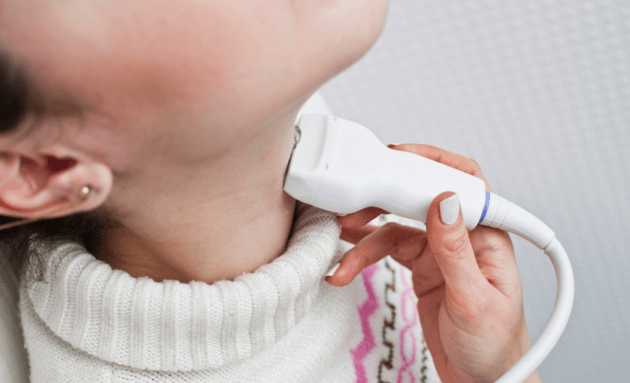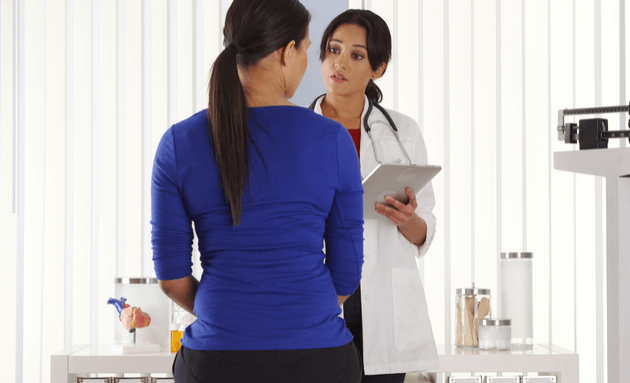5 Important Diagnostic Tests For Women Above 30
As women, the anatomical setup of our bodies can leave us susceptible to certain health conditions. Further, as we age, hormonal developments and sociological elements can add to these conditions and put us at risk of developing a host of diseases.
To keep such ailments at bay, regular health checkups are essential as they can help identify early warning signs, avoiding both painful symptoms and heavy costs associated with treatment in the long term.
Important Health Checks for Women Over 30
As you move past or into your thirties, here are five tests you should consider getting regularly to maintain optimum health. Keep in mind that these tests may need to be started earlier if you display certain symptoms or carry certain risk factors such as a family history of a certain disease.
- PAP Smear and Pelvic Examination
-

A Pap smear or a Pap test helps your doctor examine the cells of your cervix to understand your risk of cervical cancer - a form of cancer that is highly treatable when detected early. A pelvic examination, on the other hand, helps check the health of your reproductive organs, including your vagina, ovaries, fallopian tubes, uterus, vulva, and cervix.
Pap smears along with routine pelvic exams are recommended at least once every three years for all women above 21 years of age. If you notice symptoms such as vaginal bleeding, cysts, have suffered from a sexually transmitted disease, or have a family history of cancer, you will need to get these tests done more frequently.- Mammogram
- A mammogram is a test that helps doctors screen for breast cancer. As part of the test, the patient’s breast is compressed between two plates to enable x-ray imaging. In India, breast cancer is the most common form of cancer in women, with women as young as 30 suffering from the disease. While an early diagnosis can save lives, many women discover they have the disease when it is already too late.
A mammogramcan help identify cancer early and thus treat it before it spreads. In Indian women, this test is recommended once every two years starting at ages 45-50. Women who have a family risk of breast cancer may need to start this test earlier. Speak to your doctor to understand if you are at risk of breast cancer.
- Thyroid Function Test

-
The thyroid gland helps produce two important hormones called Thyroxine (T4) and Triiodothyronine (T3), both of which help regulate metabolism in the body. When your thyroid hormone levels drop (hypothyroidism), metabolism can slow down and cause your body function to slow. This, in turn, can cause fatigue, dry skin, and weight gain, amongst many other symptoms. An overactive thyroid (hyperthyroidism), on the other hand, can cause your heart to beat abnormally fast, cause anxiety, weight loss, and difficulty sleeping, amongst other symptoms.
Women are more likely than men to be affected by an underactive or overactive thyroidgland. A thyroid function test will help measure your thyroid hormone levels for normalcy. While the symptoms mentioned above could also be indicative of other routine ailments or ageing, it is advisable that you speak to your doctor about whether you need to get this test.
- Lipid Panel Test
While not specific to just women, a lipid panel is important as it helps to check your cholesterol and triglyceride levels. High cholesterol levels can clog your arteries and put you at risk of heart disease. Further, high cholesterol levels do not display any significant symptoms and can only be detected with the help of a test.
- Starting from 20 years of age, this test is thus recommended for everyone at least once in five years. Individuals with a family history of heart disease or those who have certain risk factors (such as obesity or diabetes) may need to get this test done more frequently. Speak to your doctor to understand how frequently you need to get this test.
- Blood Pressure Test

-
Your blood pressure can be an important indicator of ailments such as hypertension. In women especially, hormonal and lifestyle factors such as menopause, complications with pregnancy, and stress, can increase the risk of heart disease. A blood pressure test can help detect and control heart disease early on.
- For individuals with normal blood pressure, an annual checkup is recommended. If your blood pressure reading is too high or too low, your doctor will recommend more frequent tests. You may also need further testing if you suffer from diabetes, heart disease, kidney problems, or certain other ailments.
Besides the above-mentioned tests, it is important to periodically check your blood sugar levels and watch out for changes in your skin, such as unusual or new warts or moles. Post-menopausal women may also be at risk of fragile bones or osteoporosis as they age.
Keeping in touch with your doctor as you age is very important as it gives you the opportunity to discuss the problems you face and treat them early. That said, always remember, irrespective of your age, staying alert and aware of what your body is telling you is very important as it can be a sign of something larger that needs treatment.






